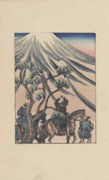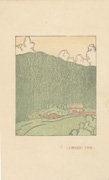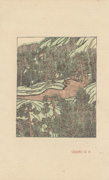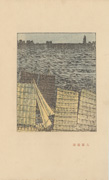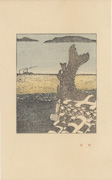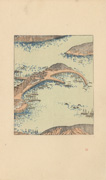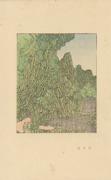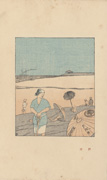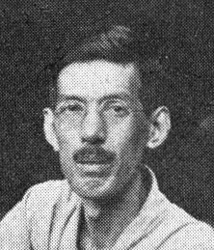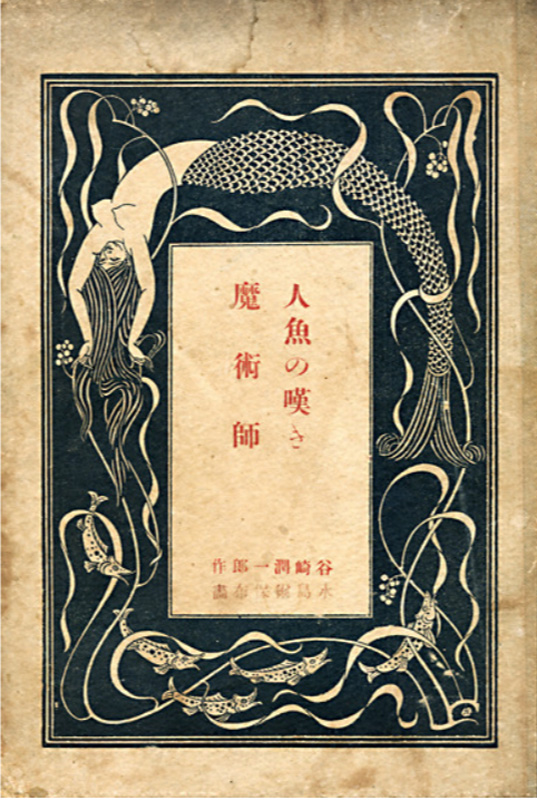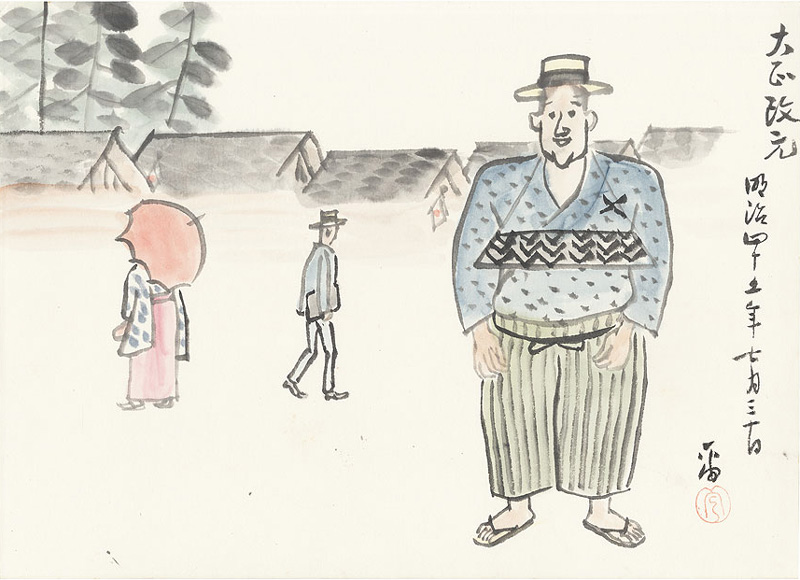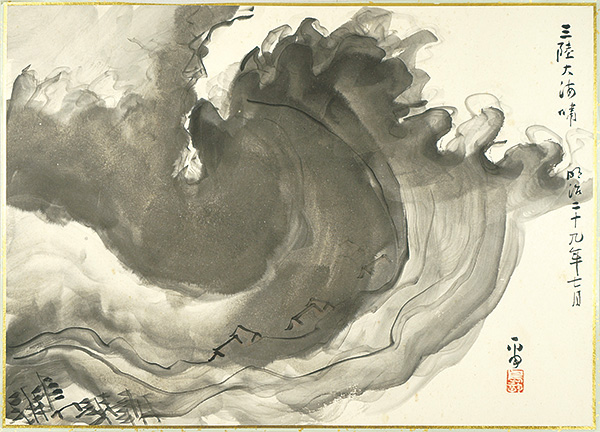Prints in Collection
Woodblock Illustrations from the book Tōkaidō gojūsan-tsugi Setonaikai, 1920
IHL Cat. #2352
Sakanoshita, Suzuka Tōge
IHL Cat. #2353
Nissaka, Night Crying Stone
IHL Cat. #2354
Osaka, Chikko
IHL Cat. #2355
Himeji
IHL Cat. #2356
Tomo
IHL Cat. #2357
Yabakei
IHL Cat. #2358
Beppu
IHL Cat. #2359
Sources: Wikipedia Japan https://ja.wikipedia.org/wiki/%E6%B0%B4%E5%B3%B6%E7%88%BE%E4%BF%9D%E5%B8%83; Guide to Modern Japanese Woodblock Prints: 1900-1975, Helen Merritt, University of Hawaii Press, 1992, p. 94 and as footnoted.
Fifty-Three Stations of the Tōkaidō – The Inland Sea (Tōkaidō gojūsan tusgi – Setonaikai), which is considered to be the last major work of the sketch-tour genre. Along with Maekawa Senpan (1888-1960), Okamoto Ippei (1886-1948), Hiratsuka Un'ichi (1895-1997) and the fourteen other members of the Tokyo Manga Association he contributed to Tōkaidō gojūsantsugi manga emaki 東海道五十三次 漫画絵巻 published by Chūō Bijutsu Kyōkai in 1921, consisting of 2 scrolls, each over 30 feet long and 10″ high, containing 55 paintings.
As a book illustrator, his drawings for Jun’ichirō Tanizaki's Ningyo no Nageki 人魚の嘆き (The Mermaid’s Lament) published by Shun'yōdō in August 1919 and the 1950 translation of the Chinese folk legend The Illustrated Journey to the West 繪本西遊記 stand out.
cover to The Mermaid's Lament: The Magician, written by Jun’ichirō Tanizaki, pictures by Mizushima Nihofu
published by Shun'yōdō, August 1919
7 1/2 x 10 1/3 in. 86 pages
人魚の嘆き・魔術師 谷崎潤一郎著 水島爾保布画 大正八年八月 春陽堂発行
19 X 26.2 cm 86頁
He was active in the avant-garde movement belonging to groups such as the Kōjusha (Art Group) 行樹社 (1912-1917) and Daiichi-Sakka-Domei 第一作家同盟 (First Writers Alliance, or DSD) characterized as "a "radical nihonga group...dedicated to establishing social equality, and integrating stylistic and theoretical developments in European avant-garde an into Japanese-style painting".1 Merritt notes, but I can find no other confirmation, that he "specialized in kamishibai (paper picture shows)" and that he was "possibly active with early sosaku hanga circles."2
Examples of Artist's Manga
The [1896] Sanriku Tsunami from Manga Paintings: Illustrations of Sixty Years of History Since the Founding of the Nation, 1927
12 x 16 5/8 in.
watercolor, published by Chūō Bijutsu Kyōkai
肉筆漫画開国六十年史図絵 三陸大海嘯
30.5 × 42.2 cm
image source: Yamada Shoten https://www.yamada-shoten.com/onlinestore/detail.php?item_id=45348
Example of Artist's Japanese-Style Painting
Illustration of Chosei Bridge, undated
Chōsei-bashi no zu 長生橋之図
Nagoya Central Library
image source: Wikipedia
Several Examples of the Artist's Signatures and Seals
 爾保布 / 爾保布 Nihofu / Nihofu seal |  爾 / 爾 Ni / Ni seal |  possibly "ni" |
1 MAVO: Japanese Artists and the Avant-Garde 1905-1931, Gennifer Weisenfeld, University of California Press, 2002p. 99.
2 Guide to Modern Japanese Woodblock Prints: 1900-1975, Helen Merritt, University of Hawaii Press, 1992, p. 94
last revision:
8/8/2020 created
